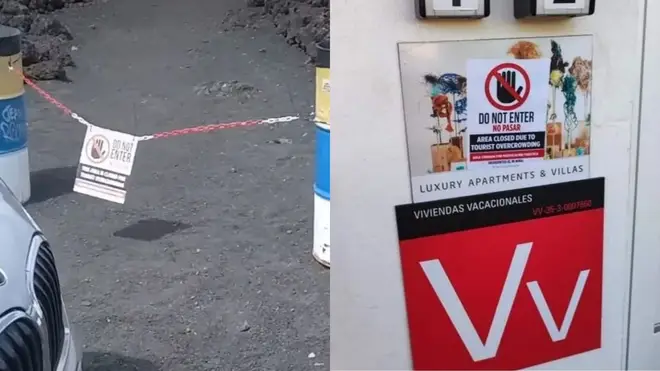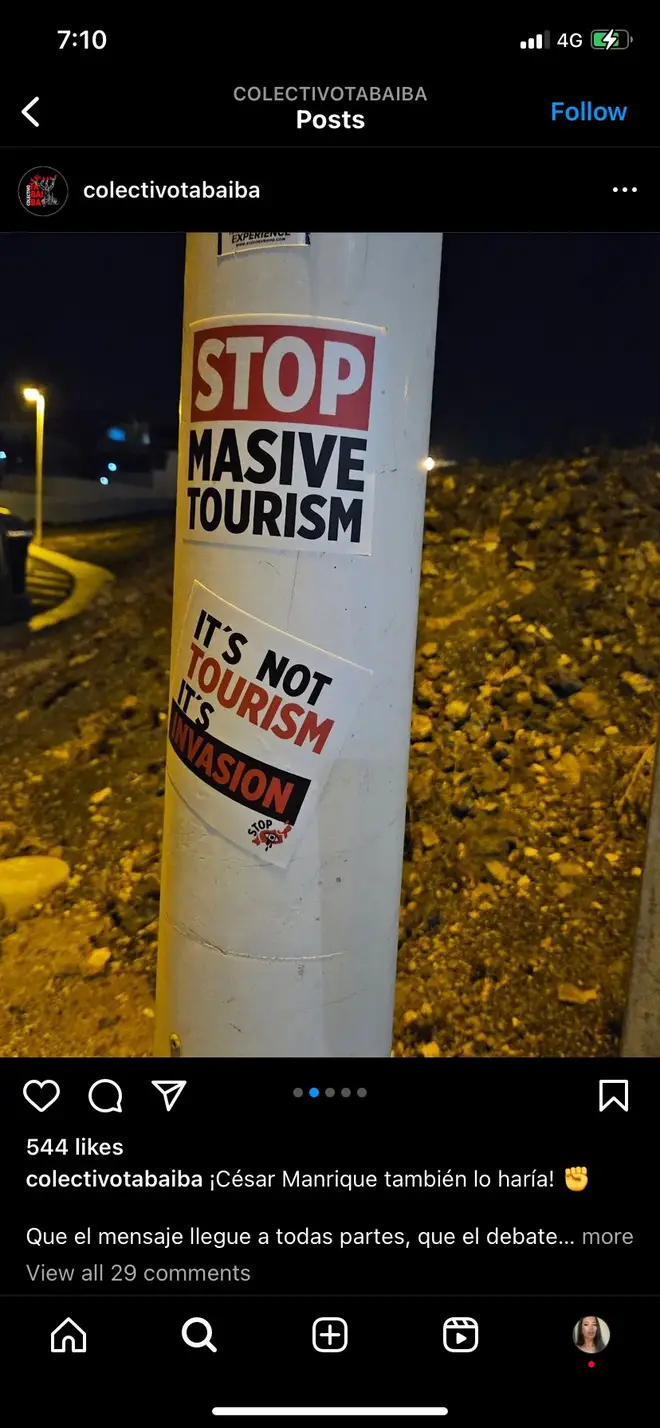
Paul Brand 10am - 12pm
8 April 2024, 19:44 | Updated: 8 April 2024, 19:46

Anti-tourism protesters on the Spanish island of Lanzarote are putting up fake signs at island beauty spots in a new campaign against a "tourist avalanche".
Some of the fake signs have been put up at beaches or entrances for national parks in an attempt to keep tourists away.
Images and videos of the signs have been uploaded to an Instagram account called Colectivo Tabaiba.
The bio of the account reads: "Anonymous fight for an island to live on. Parque Lanzarote is our home, not a theme park."
Lanzarote is preparing for a protest on April 20 to stop the influx of tourists, with residents in Tenerife, Gran Canaria, Fuerteventura and La Palma taking part in the demonstration as well.

One post on the account states: "Where an attack against the landscape, territory or environment is committed, the resistance will arise."
Read more: Teen stabbed to death at shopping centre named by police as 15-year-old Isaac Brown
Another image caption of an anti-tourism sign placed on rental property reads: "Every vacation home is a home snatched from a resident family."
One of the fake signs (pictured above) was erected near the Timanfaya volcano.
The account has also slammed future plans for development which means more hotels could be built on the island.
The campaigners have criticised issues saying it is impossible to access housing and also criticise the congestion of health services, the collapse of the waste management system, the lack of water for consumption and the agricultural sector.
They also raised problems with loss of quality of life, poor public transportation, overcrowding of protected spaces and the loss of biodiversity, among others.